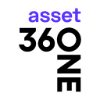HDFC Non-cyclical Consumer Fund - Growth Option
-
-
- 1W
- 2W
- 1M
- 3M
- 6M
- 1Y
- SI
Fund info
NAV (as on 2025-12-03)
14.27
-0.78%
AUM (Fund Size)
46
Expense Ratio
2.32%
Exit load
In respect of each purchase/switch-in of units, an Exit load of 1% is payable if units are redeemed /switched-out within 30 days from the date of allotment. No Exit Load is payable if units are redeemed / switched out after 30 days from the date of allotment.
Risk
Very High Risk
SIP Returns
| Period Invested for | ₹1000 SIP Started on | Investments | Latest Value | Abs. Returns |
|---|---|---|---|---|
| One Week | 2025-11-26 | ₹1,000.00 | ₹990.21 |
-0.98 %
|
| Two Week | 2025-11-18 | ₹1,000.00 | ₹990.76 |
-0.92 %
|
| One Month | 2025-11-03 | ₹1,000.00 | ₹973.19 |
-2.68 %
|
| Three Months | 2025-09-04 | ₹3,000.00 | ₹2,914.01 |
-2.87 %
|
| Six Months | 2025-06-06 | ₹6,000.00 | ₹5,943.73 |
-0.94 %
|
| One Year | 2024-12-03 | ₹12,000.00 | ₹12,261.47 |
2.18 %
|
| Since Inception | 2023-07-12 | ₹30,000.00 | ₹33,465.20 |
11.55 %
|
Return Calculator
SIP Amount
1M
6M
1Y
3Y
5Y
Investment
₹0
Maturity Value
₹0
Abs. Returns
0
Current CAGR
0
Portfolio
Allocation of Equity and Debt Asset Classes.
Equity
77%
Debt
1%
Others
0%
Sectors Holding in HDFC Non-cyclical Consumer Fund - Growth Option
Companies Holding in HDFC Non-cyclical Consumer Fund - Growth Option
Risk Ratios
Std. Deviation
15.301
Beta
1.000
Sharpe Ratio
0.892
Lock In Period
N/A
Residual Maturity
N/A
Standard Deviation:
Standard deviation numbers measure the variability or volatility of a fund's returns over
a specific time period (often 3 years).
- Low standard deviation = Stable, predictable returns → Suitable for conservative investors seeking stability.
- High standard deviation = High volatility, more risk → Be cautious, suitable for risk-tolerant investors who can handle fluctuations.
Beta:
Beta measures a fund's volatility about the market or a benchmark. A lower beta means the
fund's performance is less sensitive to market movements, making it more predictable compared to the
market.
- Low beta = Less sensitive to market changes → Great for investors with less market exposure.
- High beta = More sensitive to market changes → Better for aggressive investors who seek higher returns but can handle market risks.
Sharpe Ratio:
The Sharpe Ratio measures how much return a fund has made compared to the risk it carries.
A higher Sharpe ratio indicates better returns relative to the risk taken, meaning the fund delivers
more efficiently.
- A higher Sharpe ratio indicates better risk-adjusted returns → Look for funds with higher ratios for better return efficiency.
- Use it to compare different funds' efficiency in generating returns relative to the risk taken.
Lock-In Period:
India's "lock-in period" in mutual funds encourages long-term investment, particularly in tax-saving schemes preventing redemption or selling of units.
Lock-in times for various investment types
- Most ELSS mutual fund holders hold for 3 years.
- Tax savings FDs lock in for 5 years.
- The lock-in period for 8% Government of India bond investment is 6 years.
- ULIPs must be locked in for 5 years.
- The average hedge fund holding period is 30-90 days.
- The average PPF investor holds onto their money for 15 years.
Residual Maturity:
Residual maturity is the remaining time until a security reaches its maturity date. It is an important factor for investors to consider when evaluating the risk associated with an investment.
There are two different types of residual maturity.
- Short-term residual maturity: This occurs when a security has less than a year left on its maturity.
- Long-term residual maturity: This occurs when a security has more than a year left on its remaining maturity.
Risk-O-Meter
Investors understand that their principal will
be at
Very High Risk
Scheme Details
Min. SIP Amount
N/A
Min. Lumpsum Amount
N/A
AUM (in Cr.)
N/A
Expense Ratio Regular
2.32
Expense Ratio Direct
1.10
Lock-in Period
N/A
Fund Age
N/A
Benchmark
N/A
Fund managers
Amit Sinha
Over 21 years Experience
Dhruv Muchhal
Over 10 years Experience
Exit load
In respect of each purchase/switch-in of units, an Exit load of 1% is payable if units are redeemed /switched-out within 30 days from the date of allotment. No Exit Load is payable if units are redeemed / switched out after 30 days from the date of allotment.
FAQs
Is a Mutual Fund with a Lower NAV Better?
What Are the Charges in Mutual Fund Investments?
What Are the Tax Benefits of Mutual Funds?
Is It a Good Time to Invest in Mutual Funds?
What Is the Difference Between Dividend and Growth Plans?
Should I Invest in Infrastructure Funds?
What Are Sector-Specific Funds/Schemes?
What Happens If I Miss an SIP Payment?
How Can I Compare Different Mutual Funds?
Get In Touch
Interested in exploring more about JezzMoney Mutual Fund Distributors Software? Submit the form, and we will respond quickly.
Get Expert Advice on Investment in Mutual Funds!
- Certified mutual fund distributors around India will reach out to help you build your future.
- Connect with trusted mutual fund distributors and find them from your city and pincode area.
- JezzMoney is only the mediator to help you connect with these certified professionals.
- It is your obligation to gather accurate information when you receive contact from our platform.




